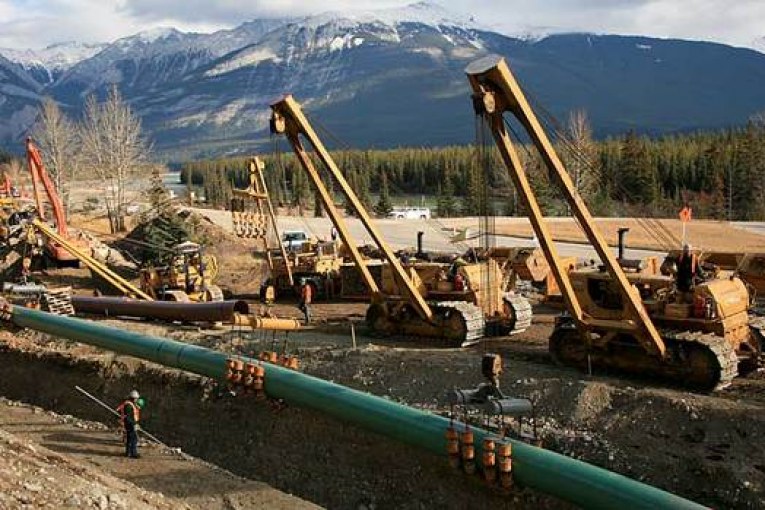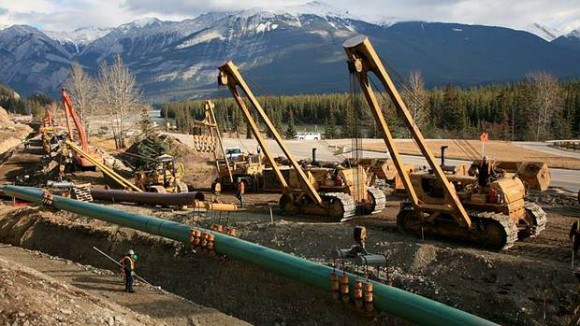

A Canadian court wrapped up a final hearing on Kinder Morgan Canada Ltd's Trans Mountain crude oil pipeline expansion on Friday, a two-week proceeding that marks a major hurdle for the embattled project.
The proposed expansion of the existing Trans Mountain pipeline from Canada's oil-rich Alberta province to the west coast has faced mounting opposition from environmental and aboriginal groups, who have filed for judicial review of project's federal approval. A final decision could take months but if the verdict goes against the C$7.4 billion ($5.9 billion) expansion, it would send it back for assessment, which could cause lengthy delays and even derail the project. Over two weeks in Canada's Federal Court in Vancouver, lawyers for the judicial review's proponents argued that Canada failed in its duty to consult First Nations and other groups on the expansion and neglected to adequately review certain environmental issues. On the other side of the suit are Kinder Morgan, the federal government and energy regulator, the National Energy Board. “All of the applicants, indigenous and otherwise, have raised strong arguments and the court has asked a lot of questions showing they are engaged with all of these issues,” Ecojustice lawyer Dina Tuytel, who is involved in the hearings on behalf on Trans Mountain's opponents, told Reuters. Kinder Morgan spokeswoman Ali Hounsell said the project approvals followed many years of engagement and consultation with communities, aboriginal groups and individuals. The government has called the export of natural resources a “fundamental” responsibility, and it and Kinder Morgan have said the they held extensive consultations with aboriginal groups. The Trans Mountain expansion would nearly triple the capacity of an existing pipeline to 890,000 barrels per day and significantly increase crude tanker traffic off the west coast. Energy projects in North America have come under increasing opposition from activists concerned about their carbon footprint and possibility of oil spills. While it is rare for Canada's judiciary to review pipeline approvals, the last such case, heard in 2015, helped kill Enbridge Inc's Northern Gateway pipeline. There is no firm deadline for rendering judgments for such cases, although the court announced its decision against Northern Gateway in June 2016, about eight months after hearings ended. Regardless of the outcome for Trans Mountain, any decision is likely be appealed in Canada's Supreme Court. (Reporting by Ethan Lou and Nia Williams; Editing by Marguerita Choy)You can read more of the news on source



